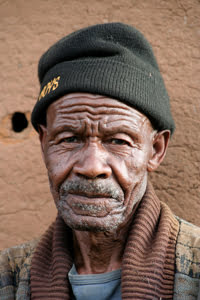Physical Abuse
Physical abuse involves the non-accidental injury, pain or impairment to an elder or dependent adult. The inappropriate use of drugs, restraints and confinement also constitutes physical abuse. http://www.helpguide.org/articles/abuse/elder-abuse-and-neglect.htm

Some possible signs of physical abuse of an elderly person or dependent adult include bruises, welts, loss of weight, dehydration or malnourishment and an injury that does not seem to fit its explanation (Elder Abuse Prevention) [1].
Financial Abuse
Financial abuse is a form of abuse commonly associated with older adults. Financial abuse occurs when a person’s finances are improperly used http://www.elder-abuse-information.com/news/news_090205_financial_law.htm. Some clues that an elder or dependent adult may be experiencing financial abuse include checks with signatures that do not match the signature of the elder or dependent adult; having unpaid bills, when someone is responsible for paying the bills; and missing personal belongings (Elder Abuse Prevention) [1]. Other signs of possible financial abuse include a recent reverse mortgage, purchase of annuity and the refinancing of a home (D. Aindow, personal communication, 2009)
Emotional Abuse
Emotional abuse includes verbal assaults, threats and intimidation. It also can involve subjecting an elder or dependent adult to serious emotional distress and fear http://www.ag.ca.gov/bmfea/pdfs/citizens_guide.pdf. As with physical abuse, emotional abuse is an intentional and deliberate act on the part of another person to impose mental suffering on an elder or dependent adult (Elder Abuse Prevention) [1].
Abuse or Neglect by Caregiver
Elder and dependent adults may also experience abuse or neglect by their caregiver. Some signs that may indicate possible abuse are when a caregiver displays aggressive behavior toward an elder or dependent adult, is unwilling to cooperate with other service providers in planning for care, or when there are conflicting reports of an incident by family, friends or the victim. An elder or dependent adult may be neglected by a caregiver if they are not receiving adequate health care, have unattended rashes, bedsores or lice, or are not properly clothed (Elder Abuse Prevention) [1].
Self-Neglect
Aside from neglect from an elderly or dependent adult’s caregiver, an elderly or dependent adult may also experience self-neglect. This involves refusing medical or personal care or not attending to one’s own needs http://www.aginginplace.org/guide-to-recognizing-elder-abuse/. While it may not necessarily be a crime to neglect oneself, it is a red flag that an elder or dependent adult may need a higher level of care.
[1] Elder Abuse Prevention. n.d. Information and Resource Guide. (pamphlet).

